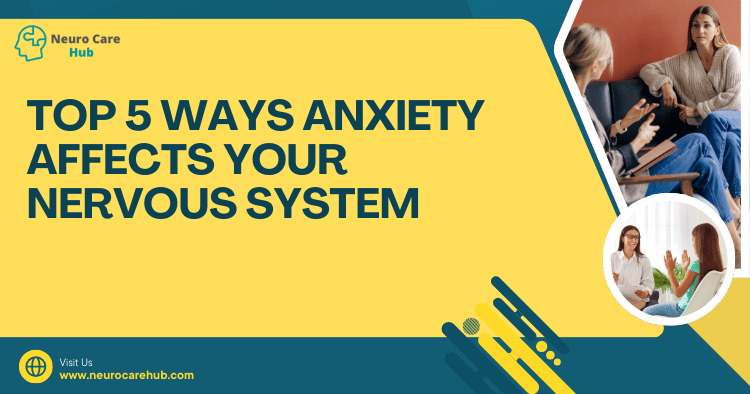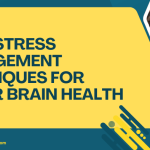Table of Contents
- Understanding PTSD and Its Mechanism
- Hyperarousal: The Constant State of Alert
- Dysregulation of the Autonomic Nervous System
- Memory and Learning: The Impact on Cognition
- Physical Health Consequences: The Body-Mind Connection
- Conclusion: Finding Balance and Healing
Understanding PTSD and Its Mechanism
Post-Traumatic Stress Disorder (PTSD) is a mental health condition triggered by experiencing or witnessing a traumatic event. Understanding how PTSD affects the nervous system is crucial for recognizing its broader implications on both mental and physical health.
PTSD involves a complex interplay of neurobiological changes, particularly in the brain regions responsible for memory, emotion regulation, and stress response.
When someone experiences trauma, their body enters a fight-or-flight state, releasing stress hormones like cortisol and adrenaline. This heightened state can lead to long-term changes in the nervous system, affecting how individuals respond to stress even long after the traumatic event has passed.
For a deeper understanding of PTSD, you can visit the National Institute of Mental Health. Also, look for insights on how mental health care intersects with neuro care in articles like Neuro Care vs. Mental Health Care: Key Differences Explained.
Hyperarousal: The Constant State of Alert
One of the most significant effects of PTSD on the nervous system is hyperarousal. Individuals with PTSD often experience an exaggerated startle response, irritability, and difficulty concentrating. Hyperarousal can make it feel like your body is perpetually on high alert, as if there’s a threat lurking around every corner.
Symptoms of Hyperarousal:
- Increased heart rate: Your heart races even in calm situations.
- Excessive sweating: Even in cool environments, you may sweat profusely.
- Sleep disturbances: Insomnia or nightmares that disrupt restful sleep.
This heightened state of awareness can be exhausting and can lead to anxiety and depression, creating a cycle that is difficult to break. Treatment options such as cognitive behavioral therapy (CBT) and mindfulness practices can help in managing these symptoms. For more on managing stress and anxiety related to PTSD, check out Top 5 Stress Management Techniques for Better Brain Health.
Dysregulation of the Autonomic Nervous System
The autonomic nervous system (ANS) regulates involuntary bodily functions such as heart rate, digestion, and respiratory rate. PTSD can disrupt the normal functioning of the ANS, leading to a state of dysregulation.
How PTSD Affects the ANS:
- Sympathetic Nervous System Dominance: This is the ‘fight or flight’ system. In PTSD, it often remains activated, causing constant stress responses.
- Parasympathetic Nervous System Underactivity: This system promotes relaxation and recovery. In PTSD, it may not activate properly, leading to difficulties in calming down after stress.
Understanding this dysregulation can clarify why many PTSD sufferers report experiencing both physical and emotional distress. Techniques such as deep breathing, yoga, and other relaxation methods can help restore balance to the ANS. For insights into the autonomic nervous system’s functions and its impact on health, consider reading Top 5 Functions of the Autonomic Nervous System Explained.
Memory and Learning: The Impact on Cognition
PTSD can significantly impair memory and learning due to its effects on the brain’s hippocampus—a region crucial for forming new memories and learning new information.
Cognitive Impacts of PTSD:
- Memory Gaps: Individuals may struggle to recall certain aspects of the traumatic event or even everyday information.
- Difficulty Learning New Information: The stress response can hinder the ability to focus and absorb new knowledge, making learning challenging.
This cognitive disruption can lead to challenges in daily life, affecting work performance and interpersonal relationships. Therapies that focus on cognitive restructuring can help individuals reframe their thoughts and improve cognitive function. For more on cognitive health, check out Top 5 Benefits of Regular Neuro Check-Ups for Your Health.
Physical Health Consequences: The Body-Mind Connection
The effects of PTSD extend beyond emotional and cognitive issues and manifest in various physical health problems. Chronic stress resulting from PTSD can lead to serious health consequences.
Common Physical Health Issues Associated with PTSD:
| Health Issue | Description |
|---|---|
| Cardiovascular Disease | Increased risk of heart disease and hypertension |
| Gastrointestinal Problems | Conditions like IBS due to stress-induced changes |
| Chronic Pain | Fibromyalgia and other pain disorders may be exacerbated |
This body-mind connection highlights the importance of addressing both mental and physical health when treating PTSD. Integrative approaches that include physical health care, therapy, and mindfulness can be very beneficial. For additional insights on the interaction between neurological health and mental well-being, see Top 5 Ways Neurological Health Impacts Mental Well-Being.
Conclusion: Finding Balance and Healing
Understanding the impact of PTSD on the nervous system is essential for those affected and their loved ones. While the journey to healing can be challenging, there are effective treatments available. From therapy to lifestyle changes, individuals can learn to manage symptoms and regain control over their lives.
If you or someone you know is struggling with PTSD, don’t hesitate to seek help. Resources such as the Substance Abuse and Mental Health Services Administration (SAMHSA) offer support and guidance.
Healing is possible, and understanding the intricate relationship between PTSD and the nervous system is a vital step toward recovery. Remember, you’re not alone in this journey! For further support and strategies, explore Top 5 Strategies for Coping with Chronic Neurological Conditions and other related articles.






